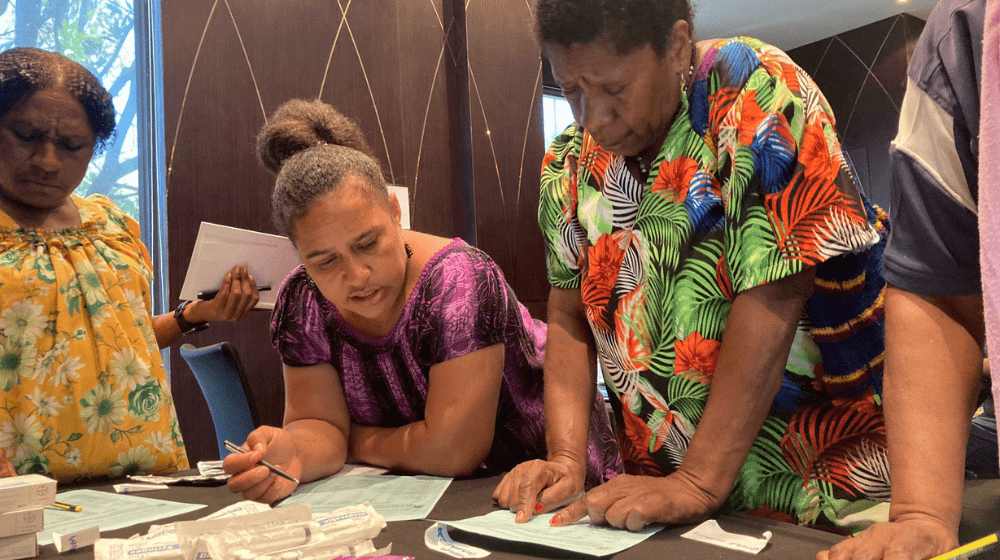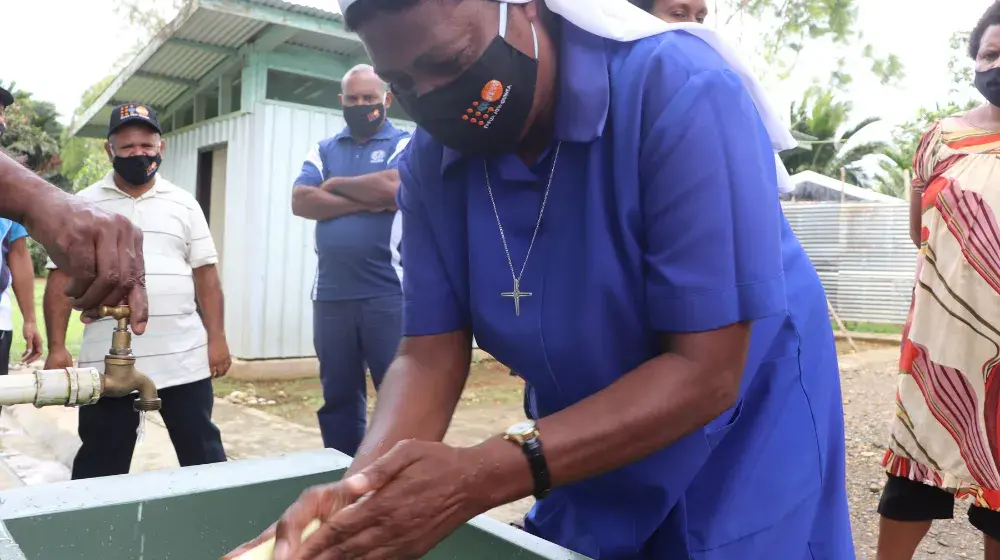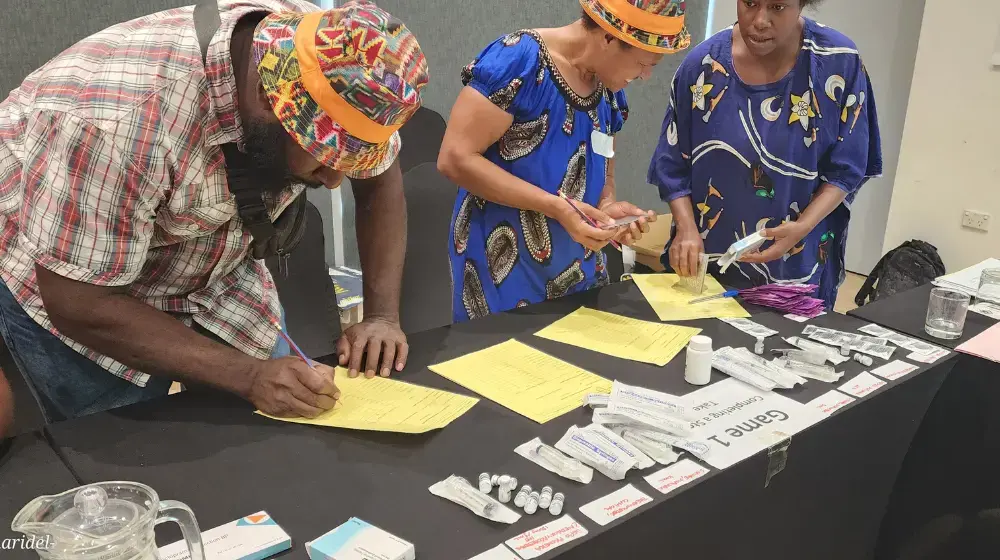The importance of maintaining adequate stock of family planning commodities for health facilities to deliver reliable family health services was stressed by NCD-based health workers during UNFPA’s recent reproductive health commodities security training in Port Moresby.
22 senior health workers throughout Port Moresby who participated in the week-long intensive training shared similar stories: when there is no stock available, patients need to find the services somewhere else. But when almost every facility in the nation’s capital reports being out of stock, where do these patients turn?
Choice of Family Planning Methods is Essential
“Most mothers request for the Depo Provera contraceptive injection which is a very practicable family planning method, with mothers taking injection once every three months,” shared Jerry Naliga from the NCD Provincial Health Authority. “However, most health facilities do not have this in stock and usually start referring mothers to another clinic or to the pharmacy.”
Several participants reported that, when contraceptives were out of stock, they would refer patients to a nearby clinic. With so many facilities reporting stock outs, this can cause some facilities to be burdened with a greater number of patients than they are capable of responding to. More likely, patients will be directed to accept the family planning that is in stock at the facility, regardless of their personal preference or personal circumstances. More than half of the training participants shared that they have advised patients to use alternative methods available to them.
Choice in family planning methods is important so that women can decide what type of contraceptive works for their needs and their circumstances. Without that choice, women may feel pressured to accept a method that does not fit their needs.
That lack of choice can have deadly consequences.
The rhythm method, or calendar method, has been recommended to patients as an option by health workers. This method, which involves calculating a woman’s ovulation cycle to try and avoid the most fertile window of the cycle, leads to a high rate of unintended pregnancy and does not protect against STIs.
Lydia, a health worker of 11 years, shared how nil stock of family planning commodities led one client to go on the ovulation method since she could not afford the pharmacy. In three months, the client became pregnant. Her baby was stillborn and she suffered postpartum hemorrage.
She passed away at Port Moresby General Hospital.
“The availability of family planning can change this narrative,” shared Lydia. “These supplies must be available to ensure that people are making sound decisions when it comes to family planning. Because they actually have a choice, it’s not up to the health workers to decide for them because there is no availability of contraceptives.”
Bridging the Supply Gaps
Most contraceptives are not delivered on time to the health facilities when ordered through the Badili Area Medical Store. Sometimes the AMS may not have the product in stock, and when they do send our order, it does not include important commodities, like Depo-Proverea.
Francis Awaiato, with 6 years experience as the Clinic Manager at the Kaugere Clinic, said that, apart from insufficient stock being received from the AMS, other factors contributing to stock outs were that staff did not know the proper formula to calculate an adequate amount of supplies and that no proper stocktake was completed. These factors lead to miscalculations.
The training facilitated by UNFPA instructed participants in how to use formulas and how to utilise the mSupply inventory system. mSupply is a software that allows health workers to accurately track their stock counts and calculate supply orders.
“I am thankful for this mSupply training and will conduct in-house sessions at my health facility on how to do proper calculations when ordering from AMS,” shared Francis Awaito. “I’ll also host in-house sessions to implement processes on how to do stocktake, placing orders, and the follow-up protocols in place when ordering and receiving drugs and through to drug dispensation.”
All participants agreed that this mSupply training broadened their understanding on the supply chain process, how to order the essential contraceptives to ensure that it is readily available for clients/patients, ensuring continued supplies without missing out on the prescribed commodities with the ultimate goal of reaching patients having the freedom of choosing a contraceptive of their preference.
This training for NCD-based health workers is the latest in a series of provincial workshops to improve utilisation of the mSupply inventory management system across the health system. UNFPA works in partnership with the National Department of Health to deliver these trainings in support of preventing medicine shortages and stock wastage.





